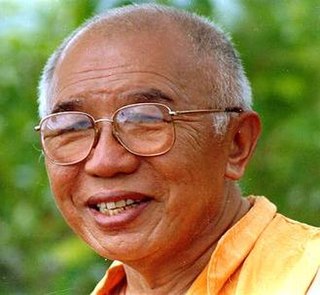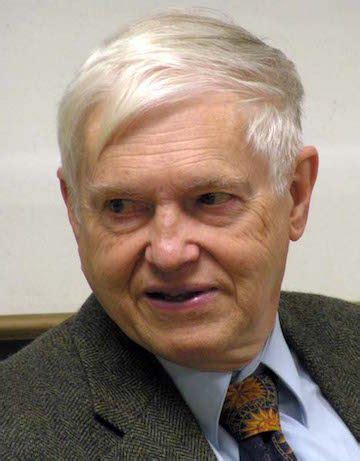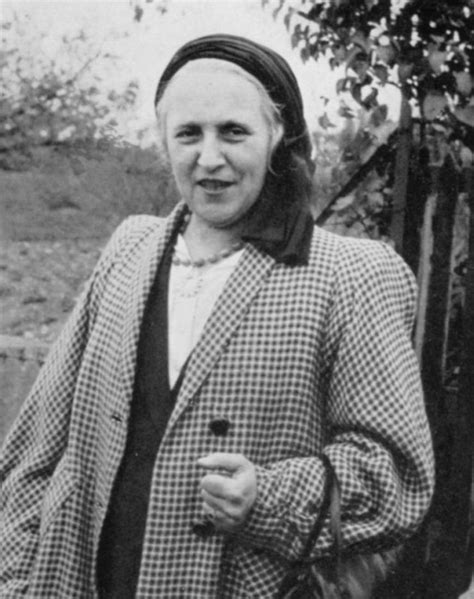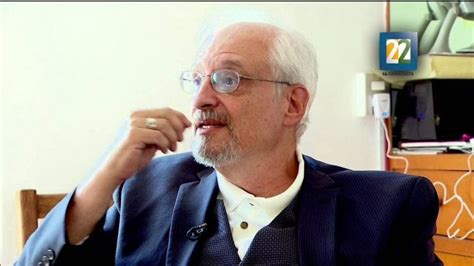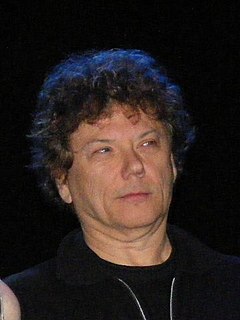A Quote by John Shelby Spong
I admire our ancestors, whoever they were. I think the first self-conscious person must have shaken in his boots. Because as he becomes self-conscious, he's no longer part of nature. He sees himself against nature. He looks at the vastness of the universe and it looks hostile.
Related Quotes
When a man in the process of dreaming becomes conscious that he is dreaming, he is no longer identified with the phenomena; he is not affected exultantly or dolefully. God consciously dreams His cosmic play and is unaffected by it's dualities. A yogi who perceives his real self as separate from his active senses and their objects never becomes attached to anything. He is aware of the dream nature of the universe and watches it without being entangled in its complex but ephemeral nature.
Conscious business.. business that is conscious of inner and outer worlds.. would therefore be business that takes into account body, mind, and spirit in self, culture, and nature. Put differently, conscious business would be mindful of the way that the spectrum of consciousness operates in the Big Three worlds of self and culture and nature.
We still talk in terms of conquest. We still haven't become mature enough to think of ourselves as only a tiny part of a vast and incredible universe. Man's attitude toward nature is today critically important simply because we have now acquired a fateful power to alter and destroy nature. But man is a part of nature, and his war against nature is inevitably a war against himself.
What is difficult to understand is that without conscious effort, nothing is possible. Conscious effort is related to higher nature. My lower nature alone cannot lead me to consciousness. It is blind. But when I wake up and I feel that I belong to a higher world, this is only part of conscious effort. I become truly conscious only when I open to all my possibilities, higher and lower. There is value only in conscious effort.
One third, more or less, of all the sorrow that the person I think I am must endure is unavoidable. It is the sorrow inherent in the human condition, the price we must pay for being sentient and self-conscious organisms, aspirants to liberation, but subject to the laws of nature and under orders to keep on marching, through irreversible time, through a world wholly indifferent to our well-being, toward decrepitude and the certainty of death. The remaining two thirds of all sorrow is homemade and, so far as the universe is concerned, unnecessary.
Central to Jungian psychology is the concept of "individuation," the process whereby a person discovers and evolves his Self, as opposed to his ego. The ego is a persona, a mask created and demanded by everyday social interaction, and, as such, it constitutes the center of our conscious life, our understanding of ourselves through the eyes of others. The Self, on the other hand, is our true center, our awareness of ourselves without outside interference, and it is developed by bringing the conscious and unconscious parts of our minds into harmony.
When the father dies, he writes, the son becomes his own father and his own son. He looks at is son and sees himself in the face of the boy. He imagines what the boy sees when he looks at him and finds himself becoming his own father. Inexplicably, he is moved by this. It is not just the sight of the boy that moves him, not even the thought of standing inside his father, but what he sees in the boy of his own vanished past. It is a nostalgia for his own life that he feels, perhaps, a memory of his own boyhood as a son to his father.
I am a Muslim and . . . my religion makes me be against all forms of racism. It keeps me from judging any man by the color of his skin. It teaches me to judge him by his deeds and his conscious behavior. And it teaches me to be for the rights of all human beings, but especially the Afro-American human being, because my religion is a natural religion, and the first law of nature is self-preservation.
I believe that the unity of man as opposed to other living things derives from the fact that man is the conscious life of himself. Man is conscious of himself, of his future, which is
death, of his smallness, of his impotence; he is aware of others as others; man is in nature, subject to its laws even if he transcends it with his thought.




